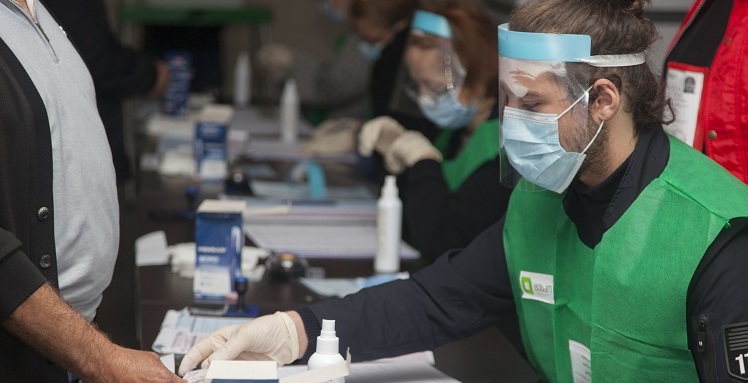On October 2nd, Georgia will be holding yet another free, fair and competitive nationwide municipal elections in continuation of a vibrant democratic tradition. These elections will be conducted in the aftermath of a series of reforms and in accordance with the key recommendations of the OSCE/ODIHR and the Venice Commission. Elections are often passionate and hard fought, and feelings run high, but it is of the utmost importance to respect the will of the voters and continuously push for a more perfect union.
The reforms initiated by the Georgian government led to a more open, pluralistic, and transparent democracy, in line with the best standards of its international friends and partners. The government has and continues to remain committed to substantive reforms that demonstrate Georgia’s commitment to good governance, fair representation, and European and Euro-Atlantic integration. Most importantly, victors must be gracious and those who lose must abide by the will of the voters. As Georgian Prime Minister Garibashvili said during his speech at the UNGA, “When the dust has settled and a winner is declared, respect the will of the people, close ranks and work to move your country forward.”
In 2018, the ruling Georgian Dream party stepped up to answer the calls of its people and international partners to enact major constitutional reforms that made Georgia a western-style parliamentary republic. These changes increased the government’s accountability to the legislature, improved parliamentary oversight, power-sharing between parties, and will lead to fully proportional representation in the 2024 election.
Parties and Candidates
- Georgian voters will elect 64 mayors and 2,068 city council members in both majoritarian and proportional terms. The ruling party nominated candidates in all cities, while some opposition parties have joined forces to introduce joint candidates with partner parties.
- The capital Tbilisi has 16 mayoral candidates running against one another in an indication of a highly pluralistic race.
International Observers
- The Georgian government will host international observers from 36 international organizations; including the OSCE/ODIHR, the Council of Europe’s Congress of local and regional authorities, the Parliamentary Assembly of the Council of Europe (PACE), the European Parliament, the OSCE Parliamentary Assembly, NDI, IRI, ENEME,GUAM and observers from foreign embassies and missions.
- Given that democracy is only as strong as faith in the system, the Georgian government seeks to ensure that all Georgian citizens and members of the international community can confirm the will of the voters in deciding who will be entrusted lead the country.
Commitment to Credible and Competitive Elections
- Since 2012, the ruling Georgian Dream party has worked to make elections more inclusive, pluralistic and competitive. A 4/1 ratio of proportional and majoritarian mandates has been introduced for the 5 largest cities and 2/1 for all others while thresholds shall be 2,5% in Tbilisi and 3% everywhere else. In addition, 40% threshold has been set for majoritarian elections. Set changes allow for greater political participation, especially in regions.
Strengthened Election Commission
- Recent amendments to election legislation enabled a large representation of political parties to the Central Election Commission (CEC). Accordingly, the new composition of the election commission has increased at all levels – CEC, district, precinct and constitutes 17 members. 9 members are appointed by political parties and 8 members are elected based on consensus. The CEC has second deputy from opposition political party.
- Important changes were made to the composition and selection of the Central Election Commission (CEC), as well as District and Precinct level election commissions. Based on recent changes, the CEC chairperson shall be elected by a 2/3 majority of a fully composed Parliament. The respective anti-deadlock mechanism is also included.
- Clear criteria for recounts of ballots have been defined. A consultative group shall be set up under the CEC’s mandate to include Public Defender’s Office as well as local and international experts selected by election observer organizations to review the dispute resolution process and provide recommendations to the CEC.
- Stricter regulations on misuse of administrative resources and easier procedures for appeals were introduced. CEC will use electronic means for voter registration, voting, counting, and making final results protocol. Stricter regulation of election day “agitation” adopted.
Commitment to Safe Elections During COVID-19
- Polling stations will adhere to strict health and safety regulations issued by the relevant health agencies to ensure the safety of election officers, voters and observers, lawmakers.
- Obligatory health and safety rules will be set at polling stations such as temperature-based screening, wearing of face masks, etc.
- Accommodations have been made to ensure that anyone testing positive for coronavirus and those in quarantine zones can be safely cast their vote and have it counted.
- Clear guidelines, safety and testing protocols to ensure a safe environment for observers.

